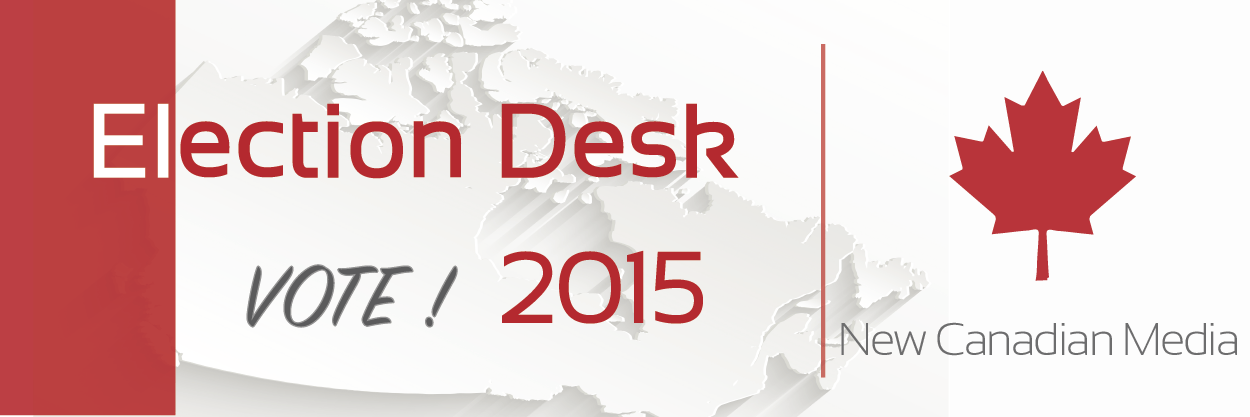 While most of Thursday’s debate between the leaders of Canada’s main federal parties was spent discussing the economy, the three managed to engage in several minutes of fiery debate on how best to intervene in the Syrian refugee crisis.
While most of Thursday’s debate between the leaders of Canada’s main federal parties was spent discussing the economy, the three managed to engage in several minutes of fiery debate on how best to intervene in the Syrian refugee crisis.
Hosted by The Globe and Mail and moderated by its editor-in-chief, David Walmsley, the lively debate centered around issues relating to investment, maintaining a balanced budget, and the current housing crisis. However, the mood shifted less than an hour in when the leaders took a break from discussing the housing bubble to addressing immigration, within the larger context of economic policy.
Both New Democratic Party (NDP) leader Thomas Mulcair and Liberal Party leader Justin Trudeau accused Prime Minister Stephen Harper of “fear-mongering” and failing to resettle adequate numbers of migrants.
“Mr. Harper why don’t you stop using the security excuse as a pretext to do nothing, because nobody wants to let somebody in without a security check, but you are doing nothing,” said Mulcair, referring to the Prime Minister’s insistence on screening all potential refugees for fear of terrorism.
Harper was quick to rebut, stating, “I have said we will bring in more [refugees]. But what I have said we will not do, these guys would have had us, in the last two weeks, throwing open our borders and literally hundreds of thousands of people coming without any kind of security check or documentation.”
Trudeau seized upon these words, calling them untrue. “We have a Prime Minister who prefers to pander to fears,” he said.
Refugee health care
The Liberal leader also used this opportunity to critique the Harper government’s cuts to refugee health services. Until April, 2012, the federal government covered the costs of drugs and medical care for refugee claimants until they had been in Canada long enough to qualify for provincial coverage. However the support changed in June, 2013, with the government ending almost all supplemental health care benefits.
Harper rejected the accusation that his government had completely ended these services. “The only time we’ve removed it is where we have clearly bogus refugee claimants who have been refused and turned down,” he said. “We do not offer them a better health care plan than the ordinary Canadian can receive.”
Harper said that policy is something that both new and “existing and old-stock Canadians agree
If elected, the Liberals have pledged to resettle 25,000 refugees before the end of the year while the NDP has promised to accept 10,000. The NDP has also committed itself to accepting 46,000 government-sponsored refugees by 2019 should it win the election this fall.
In January, the Conservatives said that they would accept 10,000 refugees over three years, but recently increased that number by an additional 10,000 people to be resettled over the next four years. So far, Canada has resettled fewer than 2,500 Syrians.
Speeding up process
Conservative MP Jason Kenney insisted on Wednesday that the government will soon announce plans to speed up the process by which refugees from Iraq and Syria are let into the country. He defended the party’s emphasis on security, saying, “At the end of the day, we have to have a manageable number so that we can apply the appropriate screening and focus on the most vulnerable.”
While the NDP and the Liberals continue to debate the resettlement question, the Conservatives seem to have shifted their focus. Last weekend, the Canadian federal government pledged to match up to $100 million in donations to its newly created Syrian Emergency Relief Fund, which supports Syrian refugees currently living in or escaping the country’s conflict. International Development Minister Christian Paradis emphasized that Canada is now deploying more resources in Beirut, Ankara and Amman — cities to where Syrians have fled since civil war broke out in 2011.
Paradis explained that the government will be implementing a “three-pillar-plan” to address the refugee crisis. The plan involves supporting the coalition fight against ISIS, contributing humanitarian aid, and continuing to process refugee applications.
Lifeline Syria
The Conservatives’ declaration answers calls by international humanitarian organizations to help refugees in their current locations as the resettlement process can often take months or even years to complete. It also marks a divergence from public opinion, which was largely in favour of supporting refugees hoping to resettle in Canada.
A Toronto-based refugee resettlement organization called Lifeline Syria has ambitions to bring 1,000 Syrian refugees to the Greater Toronto Area with the support of Canadian sponsor families. According to estimates from the government, it will cost approximately $30,000 for a Canadian family to sponsor a family of four refugees for 12 months.
Just before the government announced the creation of their Relief Fund, Ontario Premier Kathleen Wynne pledged $10.5 million in provincial funding to help settle refugees in the Ontario and to support international relief efforts.
The federal election is still a month away and while the refugee crisis has only recently been thrust into the spotlight, time will tell how public opinion will translate at the ballot booth.





